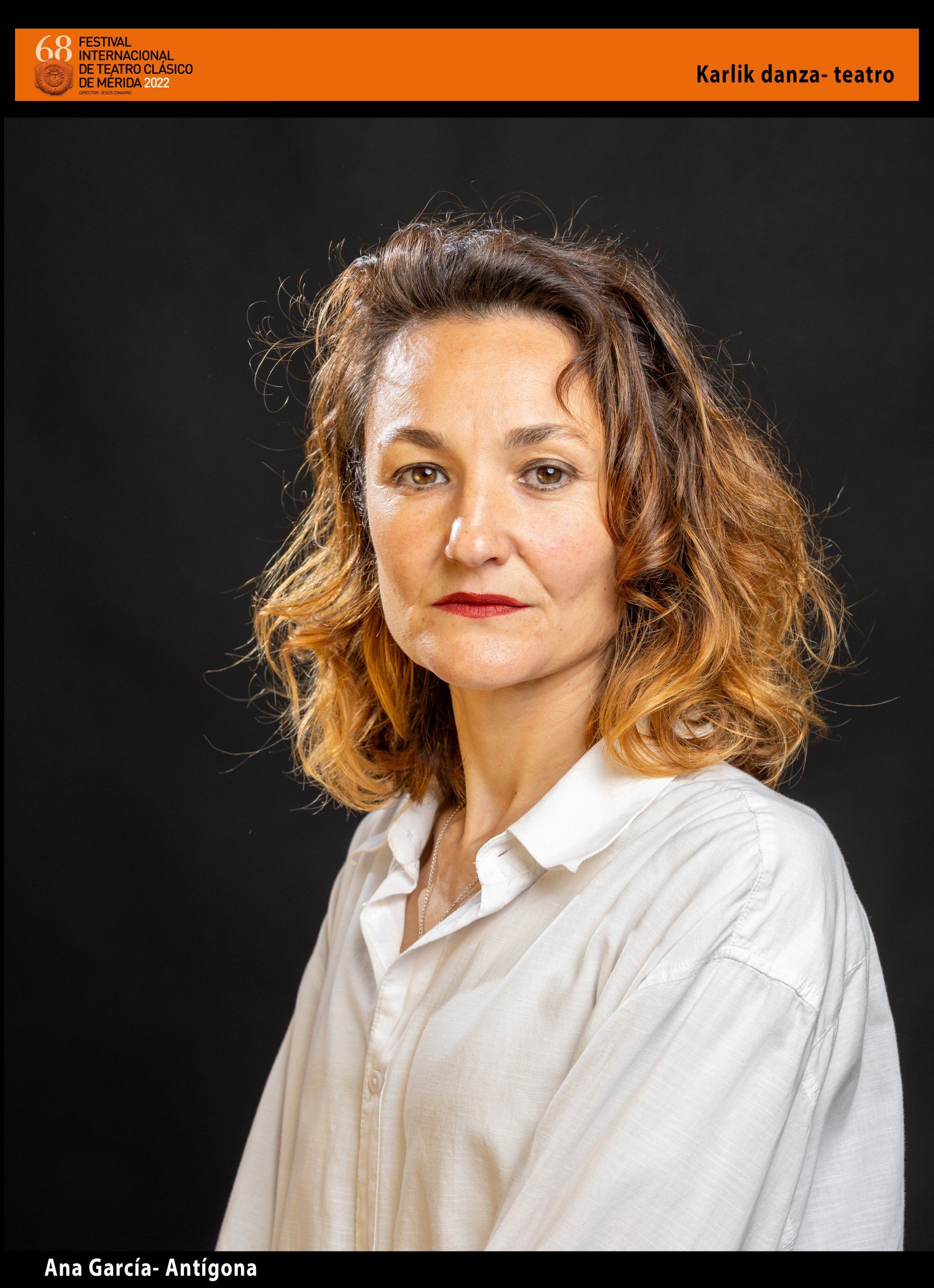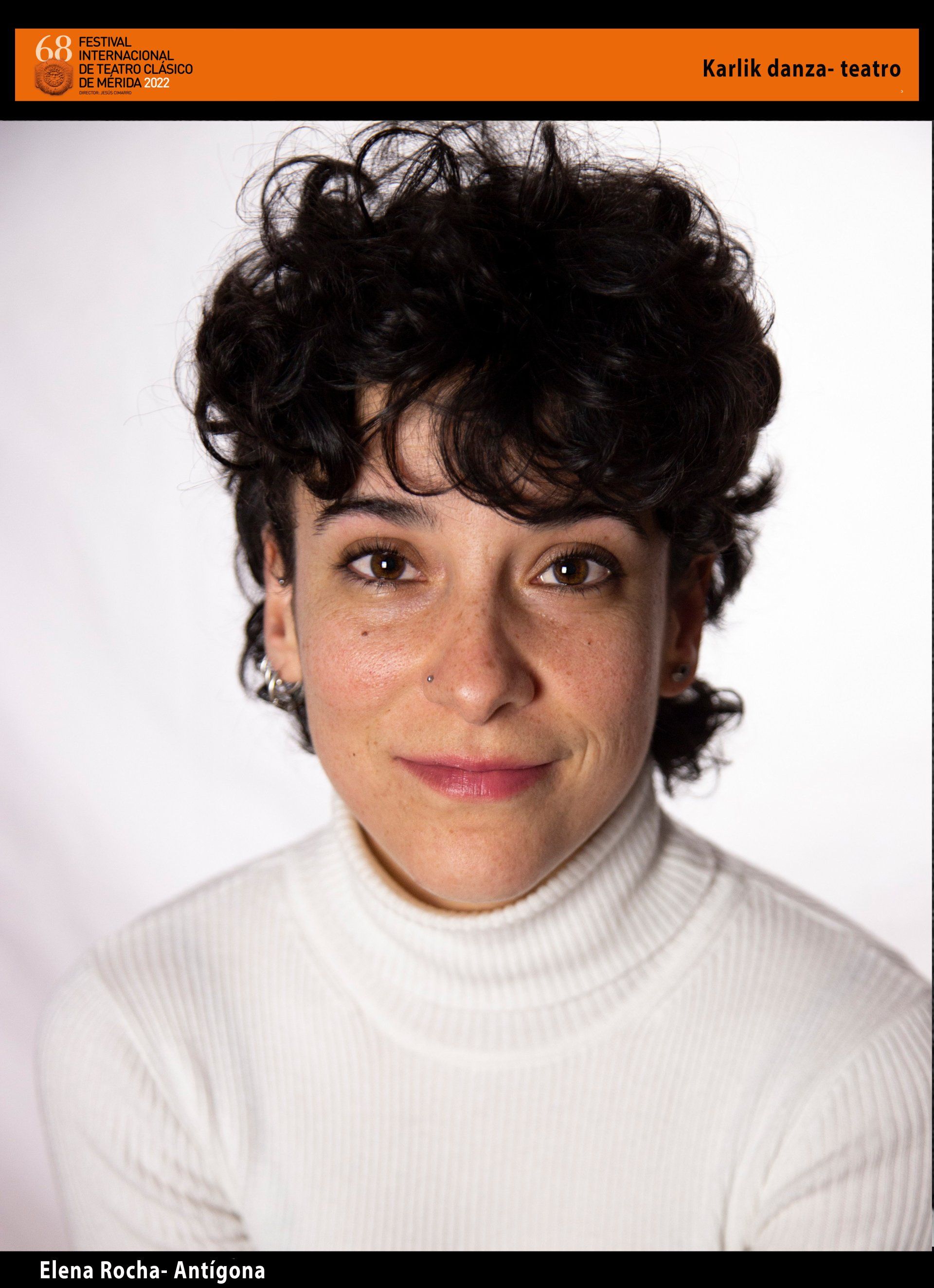From August 17 to 21, 2022 at the Mérida International Classical Theatre Festival
THE TOMB OF ANTIGONE
By María Zambrano
A co-production of the Mérida International Classical Theatre Festival and Karlik Danza-Teatro.
SYNOPSIS
“Antigone, in truth, did not commit suicide in her tomb, according to Sophocles, incurring an inevitable error, she tells us.” With these words María Zambrano begins her work The Tomb of Antigone (1967), a theatrical piece that unites philosophy and literature. In these opening words, Zambrano’s sensibility unfolds in all its splendor: hope, time, delirium, love.
Hope as the last sustenance of life that allows knowledge to germinate; time for consciousness to awaken; delirium to find links with reality when reality prevents existence from taking root in it; love as dream and sacrifice and promise.
These elements radically challenge the established canon, because Antigone not only doesn't take her own life, but she finds moments in her delirium that allow her to be reborn. Aren't we all yearning to be fully reborn? To find reasons of the heart to counter the unreason of tyrants? Don't we each have an Antigone buried alive?
Delirium in Zambrano is a language and one of the most complex forms of her poetic reason, that reason which, ultimately, allows for the birth of the creative word—a word of multiple meanings, a polysemous word, a germinative word, a revelatory word. A word that is never the last. It cannot be when the agony of Europe—an essay she published in 1945—continues to leave unburied corpses, continues to leave children without land, continues to leave anonymous dead, continues to rave between life and death.
There we find Antigone. There we find ourselves beside her because we continue to hear her. And because as long as the story that devoured the young Antigone continues, that story that demands sacrifice, Antigone will continue to rave. And it will not be surprising, then, if someone hears this raving and transcribes it as faithfully as possible.
That's what María Zambrano did. That's what we will do, following Zambrano's example.
Distribution
Ana García - Antigone
Cristina Pérez Bermejo - Antigone
Elena Rocha - Antigone
Lara Martorán- Ismene
Camilo Maqueda - Oedipus
Mamen Godoy - Ana, the wet nurse
Tania Garrido - The Harpy
Jorge Barrantes - Eteocles
Simon Ferrero - Polinices
Sergio Barquilla- Hemón
José Antonio Lucia- Creon
Francisco García-Hemón
Aolani Shirin - Violin
Artistic and technical specifications
Author:
María Zambrano
Version: Nieves Rodríguez Rodríguez and Cristina D. Silveira
Address:
Cristina D. Silveira
Musical composition: Álvaro Rodríguez Barroso
Artistic collaboration:
Susana de Uña
Set design:
Amaya Cortaire
Locker room:
Marta Alonso Álvarez
Characterization and hairdressing:
Javier Herrera
Videographies:
Félix Méndez / Alex Carot
Choreographies:
Cristina D. Silveira
Technical direction:
David Pérez Hernando
Lightning:
Fran Cordero
Sound technician:
Oliver González Amado
Train drivers:
Elena C. Galindo / Alicia Ollero
Assistant Director and Councilor:
Carlos Sañudo
Set design:
Antonio Ollero and La Nave del Duende
Props:
Amaya Cortaire and Elena C. Galindo
Costume design:
Luisi Penco and Lali Moreno
Production Assistant:
María López Martín
Technical and production management:
David Pérez Hernando
A co-production of the Mérida International Classical Theatre Festival and Karlik Danza-Teatro.



















